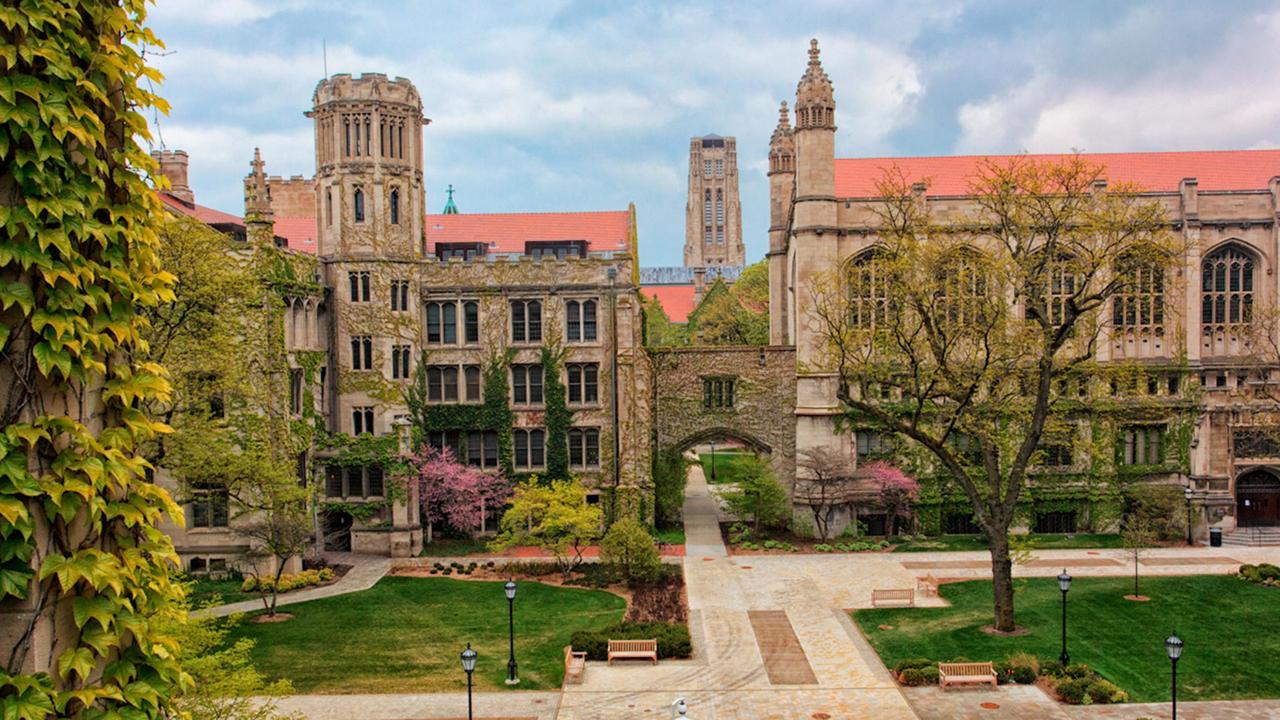A Tale Of Two Chicagos Tyler Durden Wed, 10/28/2020 - 21:05
By John Hirschauer, via Real Clear Education,
A recent survey of nearly 20,000 undergraduates at 55 major American colleges and universities suggests that students at the University of Chicago enjoy the most robust free-speech rights - and not just on paper, but in practice.
The 2020 College Free Speech Rankings is a joint venture of RealClearEducation, the Foundation for Individual Rights in Education (FIRE), and research firm College Pulse. Questions gauge students’ commitment to free expression and their perception of peer and administrative tolerance for controversial speech. Responses were coded and partitioned by institution and were used to create an Overall Score, grading the colleges and universities on their relative commitment to free speech. The Overall Score aggregates an institution’s performance in five areas: tolerance, openness, administrative support for free speech, self-expression, and the existence of speech codes on campus.
Of the 55 institutions included in the survey, none ranked higher than the University of Chicago. Its Overall Score of 64.2 outpaced second-ranked Kansas State (57.3) by 6.9 points, a larger gap than the one between 10th-ranked University of Arizona (55.3) and 50th-ranked Oklahoma State University (49). Chicago ranked first in student tolerance of controversial speakers, student perception of administrative support for free speech, and students’ perception of their ability to express themselves on campus.
Ninety-two percent of Chicago’s students felt confident that the administration would defend an embattled speaker caught in a free-speech controversy—by far the highest mark received by any institution. In a press release, FIRE quipped that while the Ivy League “offers students sterling credentials,” students should “try the University of Chicago instead” if they’re interested in being “offer[ed] free speech.”
Chicago created the Committee on Free Expression in 2014 and charged it with “articulating the University’s overarching commitment to free, robust, and uninhibited debate and deliberation among all members of the University’s community.” The Committee’s final report, released in January 2015, affirmed Chicago’s commitment “to free and open inquiry in all matters” and promised “all members of the University community the broadest possible latitude to speak, write, listen, challenge, and learn.”
The resulting “Chicago Statement” is widely considered a landmark in the ongoing battles over speech on campus. FIRE president Greg Lukianoff said that Chicago “should be proud” of the university’s free speech statement and compared it with other canonical free-speech declarations, like Yale University’s Woodward Report and the American Association of University Professors’ Declaration of Principles.
Some Chicago students dispute the survey’s depiction of the situation on campus. Undergraduate Evita Duffy claims that if her university was considered a leader on free-speech issues, then the “repression of conservative ideas on campuses is worse than most people think.”
Duffy highlighted an open letter signed by more than 120 faculty members in January 2018, which called for the disinvitation of former White House adviser Stephen Bannon from a scheduled debate, as an example of Chicago’s intolerance for controversial speech on campus. The letter’s signatories argued that Bannon “should not be afforded the platform and opportunity to air his hate speech on this campus” and implicitly accused the event organizers of “normalizing hate speech by granting it a privileged forum.”
The university released a statement defending Bannon’s right to speak on campus but failed to condemn the faculty members who wanted to deny him a platform. As of this writing, the debate in which Bannon was scheduled to participate has not occurred.
A University of Chicago spokesman told RealClearEducation that it was because of the University’s commitment to free inquiry and free expression that it refused to condemn the faculty members’ attempted disinvitation of Steve Bannon.
“The University does not limit the speech of faculty or mandate apologies for their speech, unless there has been a violation of University policy or the law,” the spokesman said. “Nor does the University insulate speakers from criticism of the manner or content of their speech or writing.”
Seventy-four percent of Chicago students identified themselves as liberal on the survey, while only 11% identified as conservative. Still, Chicago would rank third overall in the College Free Speech Rankings even if only the opinions of conservative students were considered. And when the views of all students are taken into account, the university is a clear leader over its peers.
Located just seven miles away, the University of Illinois at Chicago did not fare nearly as well, placing 44th in the survey rankings. More than half of UIC students surveyed said that shouting down a speaker on campus might be acceptable, and only 55 percent were confident that the university administration would support a speaker embroiled in a free-speech controversy.
Many students found the atmosphere on campus hostile to certain points of view. One self-described “moderate” student noted that “UIC is a very safe and protected place to speak if you’re liberal” but is “an incredibly prickly and volatile place to express any view that’s not in keeping with liberal . . . principles.” Several students expressed fear of reprisal from faculty members if they disagreed with a professor’s political opinions in class.
FIRE gave UIC a “Red” speech-code grade after reviewing the university’s codes of conduct, highlighting several passages in campus regulatory documents that could stifle students’ exercise of their First Amendment rights. By contrast, the University of Chicago earned FIRE’s “Green” speech-code grade, reflecting the institution’s strong written policies on student speech.
At the time of publication, the University of Illinois at Chicago had not responded to multiple requests for comment.
https://ift.tt/2HILzjP
from ZeroHedge News https://ift.tt/2HILzjP
via IFTTT


0 comments
Post a Comment